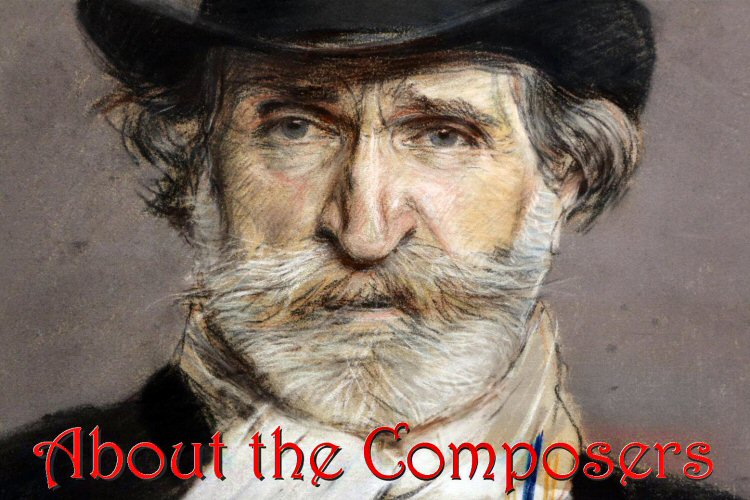This first class will offer a rapid overview of some of the topics to be considered in the rest of the course. The very different
conditions surrounding the funding and performance of Monteverdi's first and last operas, for example. Handel's work to sustain
the appetite for opera in London against the encroachment of more popular fare. Verdi expressing his fervor for a united Italy in
cautiously coded terms that would evade the Austrian censors. And more briefly, political satire of Brecht and Weill in The
Threepenny Opera and John Adams' bold decision in Nixon in China to write an historical opera about still-living
people.
If you have time, please read the words of the short scene between Nero and Seneca in The Coronation of Poppea given in
the Texts above. It is a remarkably concise lesson on political prudence, but it goes
by very quickly in performance.
All the musical numbers can be found on YouTube in one version or another; those that are different from the
ones shown in class are marked with an *asterisk. In a few cases (also *asterisked), I have been able to add an
extra scene or two from the same production. The odd exception is the selection from La bohème;
of course there are plenty of other versions of it, but as I was showing it for the specific performance of the
actress Nadja Mchantaf, you will have to be content with glimpses of her from a trailer.
For reasons of time, and my problem with the videos, I did not get to play either the scene from Saul
listed below or the Nero/Lucano scene from Poppea. But do take a look at them; they are well worthwhile.
| MONTEVERDI |
| |
Orfeo |
|
* Zurich, 1978
(Harnoncourt/Ponnelle, complete; no titles)
* Barcelona, 2002
(Jordi Savall entrance only)
* Munich, 2015
(Trailer)
|
| |
Poppea |
|
* Nero and Seneca
(From Zurich production; no titles)
* Nero and Lucano
(From Zurich production; no titles)
|
| |
| HANDEL |
| |
Tamerlano |
|
* Opening scene
(Scene shown in class, but different production)
* "Dal crudel che m'ha tradita"
(Fun scene from production shown in class)
* "Empio, ti farti guerra"
(Another Bajazet aria from this production)
|
| |
Saul |
|
* Excerpt played in class
(Complete video, cued to where we started)
* "How excellent thy name!"
(Same production, energetic Act I chorus)
* "Envy, eldest born of Hell!
(Same production, Saul's jealousy aria)
|
| |
| GAY/PEPUSCH |
| |
The Beggar's Opera |
|
* "Fill every glass!'
(Peter Brook film, 1953)
* "Over the hills and far away"
(Laurence Olivier and Dorothy Tutin)
|
| |
| VERDI |
| |
Nabucco |
|
* Hebrew chorus, "Va, pensiero"
(Metropolitan Opera, 2002; no titles)
|
| |
La battaglia di Legnano |
|
* Act IV complete
(Act shown in class, but in an older video)
|
| |
| PUCCINI |
| |
La bohème |
|
* Berlin, Komische Oper, 2019
(Trailer only of Barrie Kosky production)
|
| |
| WEILL |
| |
Die Dreigroschenoper |
|
* Ballad of Mack the Knife
(Cued to the song, but video is complete)
|
| |
| ADAMS |
| |
Nixon in China |
|
* Arrival of Air Force One
(Metropolitan Opera, 2011)
|
| |
|
|
|
|
|
| IMAGES |
The thumbnails below cover the slides shown in class. Click the
thumbnail to see a larger image.
Click on the right or left of this picture to go forward or back,
or outside the border to close. |
 | |
 | |
 | |
 | |
 | |
 | |
 | |
 | |
 | |
 | |
 | |
 | |
 | |
 | |
 | |
 | |
 | |
 | |
 | |
 | |
 | |
 | |
 | |
 | |
 | |
 | |
 | |
The class contains work by the following composers, given here in chronological order.
For bios of other composers in the course, click here.
 |
Claudio Monteverdi, 1567–1643. Italian composer.
The towering genius of the first half of the 17th century, and a founding father of opera. Unfortunately, only
three of his dozen operas survive: La favola di Orfeo (The Story of Orpheus), written for Mantua in 1607
and the earliest opera to remain in the general repertoire, and The Return of Ulysses and The Coronation
of Poppea, both written for Venice at the end of his life.
|
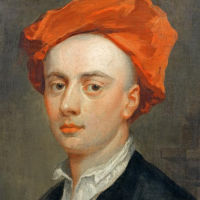 |
John Gay (1684–1732). English paywright.
Although he wrote the libretto for Handel's early opera Acis and Galatea (1718), Gay is best known as the
author of The Beggar's Opera (1728), satirizing the very kind of opera that Handel made famous. The songs in
this piece about highwaymen and whores are sung to popular tunes arranged by the German-English composer Johann Pepusch.
|
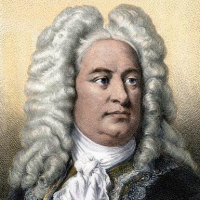 |
George Frideric Handel (1685–1759). German-born English composer.
Gradually over the last half-century, Handel's 42 operas and numerous dramatic oratorios have been recognized as
placing him on the level of Mozart and Verdi as an opera composer. The delay in appreciation is partly due to the
fact that his preferred form, opera seria, is based almost entirely on recitative and solo arias. Born in
Germany and trained in Italy, he dominated the English musical scene in the first half of the 18th century.
|
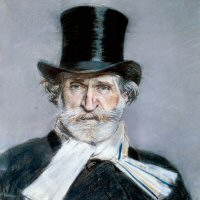 |
Giuseppe Verdi, 1813–1901. Italian composer.
The composer of 27 operas from Oberto (1835) through Falstaff (1893), Verdi became the premier
opera composer in Italy and, with his exact contemporary but very differently-thinking Richard Wagner, in the world.
His reputation rests mainly on the astonishing trio of operas that launched his middle period—Rigoletto
(1851), Il Trovatore, and La Traviata (both 1853)—and by his three final works: Aida (1871),
Otello (1887), and Falstaff (1893).
|
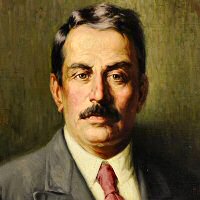 |
Giacomo Puccini, 1858–1924. Italian composer.
Puccini took up the mantle of Verdi as the dominant opera composer of the late 19th century, and developed an
international popularity that is unrivaled to this day. His principal works include: Manon Lescaut (1893),
La bohème (1896), Tosca (1900), Madama Butterfly (1904), and the unfinished Turandot
(1926). His representation in this course is sadly not commensurate with his fame.
|
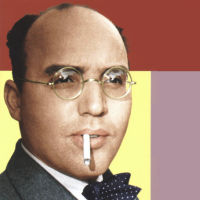 |
Kurt Weill (1900–50). German American composer.
Weill became famous in Berlin for his collaborations with Bertolt Brecht, among them The Threepenny Opera
(1928, a satirical adaptation of John Gay's The Beggar's Opera, see above) and the political opera The Rise
and Fall of the City of Mahagonny (1930). Fleeing Nazi Germany, he eventually settled in New York in 1935, finding
new fame on Broadway, but also writing more operatic fare such as Street Scene (1946, with Langston Hughes).
|
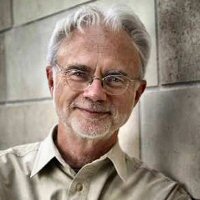 |
John Adams, b.1947. American composer.
One of the founders of musical minimalism, Adams has turned his attention to operatic subjects based on relatively
recent history and posing political questions. Examples include Nixon in China (1987), The Death of
Klinghoffer (1991), and Doctor Atomic (2005), all of which have been produced at the Met. He has beeen
especially associated with the director Peter Sellars, who also compiled the texts for all his operas from 2000 on.
|
